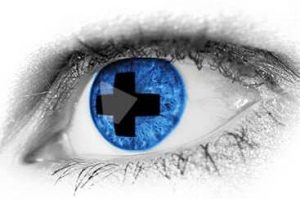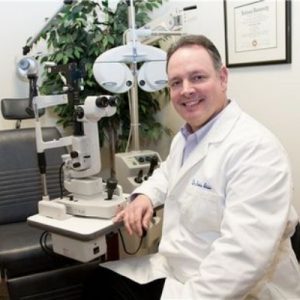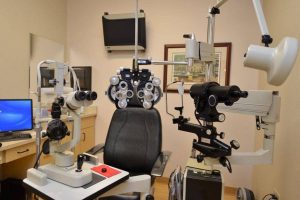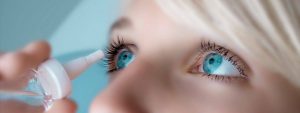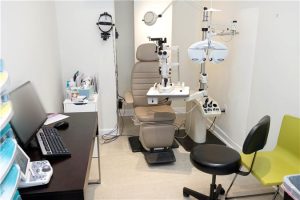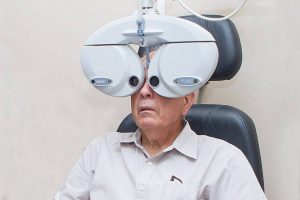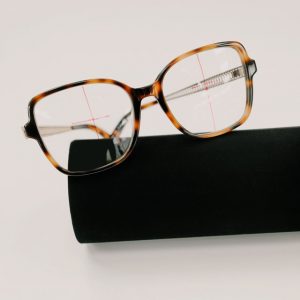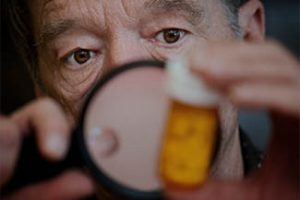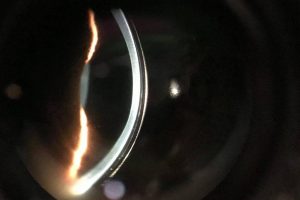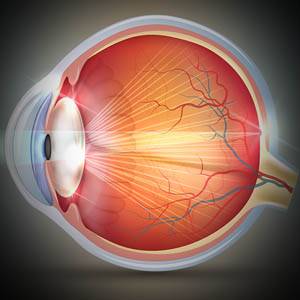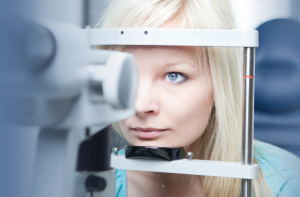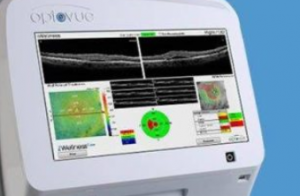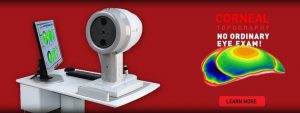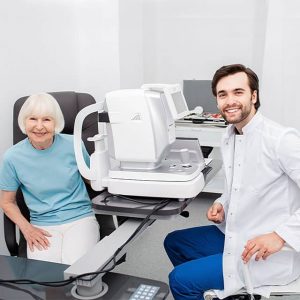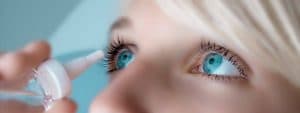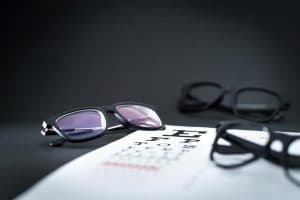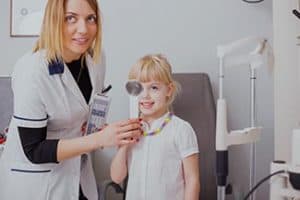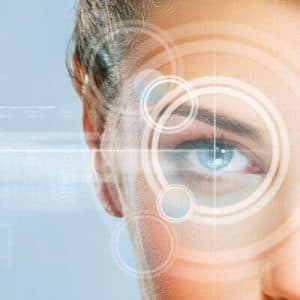How Does Herpes Affect the Eyes?
Eye herpes affects over 1.5 million people around the world each year. The most common type of eye herpes is called epithelial keratitis, which tends
Read MoreTop 5 Pediatric Eye Emergencies
In the United States, approximately 380,000 patients per year are seen by emergency eye doctors. Over 33% are children requiring emergency eye care. While pediatric
Read MoreAlbinism and Low Vision
Albinism affects at least 1 in 20,000 of the population. Ocular albinism affects the eyes, possibly causing dramatic loss of visual function and impact on the quality of life.
Read MoreTop Home Tips for Low Vision
One in six adults over age of 45 and one in four adults over age 75 has low vision. Having low vision – reduced vision that can’t be improved with glasses, contact lenses, medication or surgery – can make it difficult to perform day-to-day tasks. Fortunately, there are many things a person with low vision can do to remain independent and do the things they enjoy and love.
Read More2021 Update: Lazy Eye and Adults
Lazy eye is estimated to affect up to 5% of all adults. For many decades, it has been thought that only children under the age
Read More2021 Update: BVD and Dyslexia
Studies show that up to 15% of the population may be dyslexic, though less than 10 percent actually receive a formal diagnosis. Dyslexia is a complex condition that impacts the way the brain interprets and processes information. It is one of the most common learning disabilities that affects writing, spelling and reading.
Read MoreNearsighted or Farsighted?
Have you been told you are ‘nearsighted’ or ‘farsighted’ but not totally sure what they mean? Both of these may require you to rely on
Read MoreGlaucoma: What are the Signs?
Did you know about 3 million people in the U.S. are affected by glaucoma, but only half are aware they have it? Over 90% of
Read MoreGlaucoma: ‘The Silent Thief of Sight’
Did you know that rock star Bono from U2 has glaucoma? U2’s Bono is not alone, at least 3 million North Americans have glaucoma, but only 50% know they have it! In 95% of glaucoma cases, it starts off asymptomatic and by the time the condition is noticed, the vision loss is irreversible. That’s why regular eye exams are so crucial, even if you don’t suspect a problem.
Read MoreCataracts: Top 5 Myths and Facts
Have you been told you have cataracts, but not sure about the myths and facts? Here are the top 5 myths and facts about cataracts.
Read MoreMyopia and Vision Therapy
Vision therapy not only treats lazy eye, eye turn, or learning difficulties, but may also prevent or slow the progression of myopia. While a cure
Read MoreSmoking and Glaucoma
We all know smoking impacts our general health, but did you know it can also affect the eyes? More than 1 billion people worldwide smoke
Read MoreWhat to Do Before an Eye Exam?
About to come in for your eye exam? To get the most out of your visit, start preparing with these 4 tips. If you’re experiencing
Read MoreWhen are Atropine Eye Drops Used?
Atropine is an essential eye drop used by eye doctors in both the diagnosis and treatment of many eye conditions. When you go for your
Read MoreCan Sugar Affect Eye Health?
We all enjoy a sweet treat now and then, but too much sugar in our diet can come at a price. Here’s how eating excessive
Read MoreWhy Are Eye Exams Important?
Are Eye Exams Important? Yes! Many eye conditions, in their early stages, have no obvious signs or symptoms, so the annual exam is often the only way to detect eye conditions early. Since there are often no signs or symptoms, regular comprehensive eye exams are key to maintaining good vision and healthy eyes.
Read MoreMacular Degeneration: Myths and Facts
Let’s clear up some myths and facts on a serious sight-threatening eye condition, macular degeneration. Macular degeneration, also known as AMD, is a chronic eye condition most common in people over 60. People with macular degeneration may lose their central vision, but retain their peripheral, or side vision. There’s a lot of information about AMD out there, but how much of it is true? Considering it’s a leading cause of blindness and vision loss, it’s pretty important to get the facts straight.
Read MoreShould I Buy Glasses Online?
While buying glasses and contact lenses online may seem enticing, there are many factors to think about before clicking that ‘buy’ button. Shopping online can seem to save time and money and can be extremely convenient, done from virtually anywhere at any time.
Read MoreEye Health
Eyes are known as the ‘windows to your soul’, but they are the window to your health as well. Diseases such as diabetes, high cholesterol, heart and vascular diseases, and even some forms of cancer could be detected during an eye exam. According to Eye-Q, over 20% of Americans say an eye doctor detected a health issue – not related to the eyes.
Read MoreHow to Adjust to New Glasses
Have you ever put on a new pair of glasses for the first time, and noticed that your vision was blurry or making you feel
Read MoreTreatments for Eye Floaters
If eye floaters are affecting your vision, effective treatments are now available to give you relief. Eye floaters cause visual disturbances and can become so
Read MoreWhat to Look For in a Low Vision Magnifier?
Asking yourself these questions before deciding on a low vision device to ensure you will gain from your low vision aid. Experiencing life with low
Read MoreWhat Is a Macular Hole?
Macular holes affect up to 4 in 1,000 people above the age of 55. Early detection of a macular hole can reduce your risk of
Read MoreCan Steroids Affect Vision?
While steroids are a commonly prescribed treatment, they must be taken with caution as they can also produce certain side effects that can affect your eyes and vision. Corticosteroid drugs, also called steroids, stimulate the production of cortisol in the body. Cortisol is a natural hormone that helps to stabilize the body’s anti-inflammatory response system, and maintain immune function and blood pressure. Doctors typically prescribe steroid drugs to reduce any type of inflammation in the body, including eye inflammation.
Read MoreHow Can a Developmental Optometrist Help?
Developmental optometrists believe that vision can be developed and improved through a learned process. A developmental optometrist, also called a behavioral optometrist, focuses on the
Read MoreEye Anatomy: The Front of the Eye
Did you know that the eye is made up of over 2 million parts, each contributing a distinct vital role in your ability to see?
Read MoreHow Does the Eye Work?
If 80% of everything we learn comes through our eyes – the question is, how? The eye contains over two million working parts and is considered the second most complex organ in the body, the most complex is the brain. The inner structures of the eye all work together to produce an image that your brain interprets.
Read MoreAre You at Risk for Diabetic Eye Damage?
An estimated 30 million Americans have diabetes, and approximately 25 to 45 percent of them will develop some form of diabetic eye damage. According to
Read MoreThe Contact Lens Exam
Over 22 percent of people who wear eyeglasses enjoy the benefits of also using contact lenses. If you are thinking about contact lenses, a contact
Read MoreThe Do’s and Don’ts of Wearing Contact Lenses
Wearing contact lenses has many advantages when compared to eyeglasses. However, since the lenses sit directly on your eyes, it is crucial to be aware
Read MoreWhat Is a Visual Acuity Test?
Your visual acuity, or clarity of vision, represents how well you are able to see objects or images at a given distance. Visual acuity is
Read MoreWhat Is an OCT Eye Exam?
An optical coherence tomography scan (OCT scan) is a critical device for the early diagnosis of many serious eye conditions. An OCT eye exam is
Read MoreWhat Is Corneal Topography?
Corneal topography, also known as corneal mapping, is a diagnostic tool that provides 3-D images of the cornea. The cornea is the outer layer of
Read MoreWhat Is a Digital Retinal Image?
Digital retinal imaging (DRI) is a quick and painless way for your eye doctor to look inside your eye and track changes to your ocular
Read MoreVisual Field Testing
What is a visual field test? Your visual field is simply all the areas you can see at one time. This area includes all the
Read More5 Tips to Prevent Diabetic Retinopathy
Diabetic retinopathy affects over 30 percent of people with diabetes. Follow these 5 tips to reduce your risk of life-long vision loss.
Read MoreGuide to Eye Drops
What are eye drops used for? Eye drops are commonly administered or prescribed by eye doctors for a number of different reasons. The most common
Read MoreThe Myth of 20/20 Vision
Have you been told that your child has ‘perfect 20/20 vision’, but is still not reaching their potential at school?
A child can have 20/20 sight, and still have one or more vision problems affecting their school grades The term ’20/20 vision’ only means your child has clear distance sight, but they may still have lazy eye, eye tracking, eye focusing or visual information processing issues.
Why Is My Child Color Blind?
What is color blindness? Color blindness is not blindness at all, rather a condition that prevents a person from distinguishing certain colors from each other.
Read MoreVision Development and Milestones
It is important to watch your baby’s development to ensure they reach their milestones. A child’s vision is a complex combination of the brain, the eyes and the vast array of nerves that connect them. At birth, this visual system is still immature and continues to develop throughout the child’s early years.
Read MoreWhat Is Astigmatism?
Astigmatism is one of the most misunderstood optical terms…maybe because it is so hard to say?! Astigmatism is a refractive error that causes distorted vision, usually at all distances. It is a common vision condition that can be present at birth, or develop over time, and most frequently occurs together with myopia (nearsightedness) or hyperopia (farsightedness).
Read MoreWhy Is Myopia Management Important?
Is there a way to prevent my child’s myopia from worsening? A number of recent studies suggest that it may be possible to control myopia by totally stopping, or at least slowing down, its progression during childhood and teenage years. Myopia management is a treatment program aimed at controlling myopia, keeping the level of myopia as low as possible, in order to reduce your child’s risk of developing vision threatening eye diseases later in life.
Read MoreEye Exams for Children
Eye doctors utilize specific clinical and diagnostic tools and assessments to determine your child’s eye health and visual abilities. Since many learning skills are dependent on the strength of visual skills such as binocular vision, accurate eye movements, the ability to see distant objects, etc., doctors recommend that children have their first eye exam at age 6 months.
Read MoreAdvanced Diagnostics
Many ocular diseases develop without any noticeable symptoms. Advanced diagnostic equipment allows doctors to detect signs of ocular disease before symptoms are present —preventing significant and permanent impact on the vision, and enabling early treatment to best manage the disease.
Read MoreChoosing an Optometrist
When deciding on an eye doctor it is important to look for a reputable optometry practice that will meet all of your ocular health and vision needs. A qualified eye care professional will examine, treat, manage, and monitor your ocular health and vision, ensuring you enjoy a life of clear vision.
Read More

